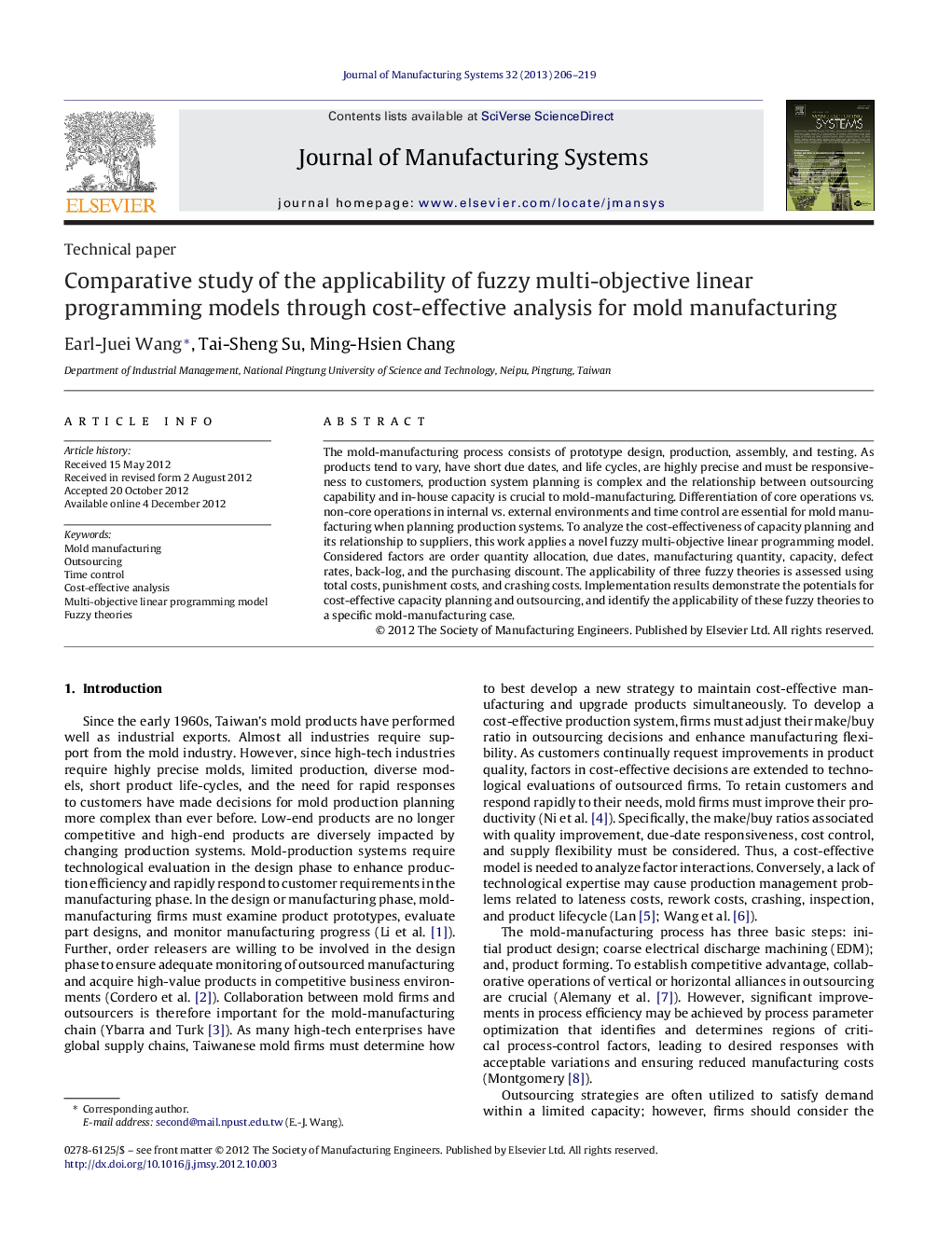| Article ID | Journal | Published Year | Pages | File Type |
|---|---|---|---|---|
| 1697666 | Journal of Manufacturing Systems | 2013 | 14 Pages |
The mold-manufacturing process consists of prototype design, production, assembly, and testing. As products tend to vary, have short due dates, and life cycles, are highly precise and must be responsiveness to customers, production system planning is complex and the relationship between outsourcing capability and in-house capacity is crucial to mold-manufacturing. Differentiation of core operations vs. non-core operations in internal vs. external environments and time control are essential for mold manufacturing when planning production systems. To analyze the cost-effectiveness of capacity planning and its relationship to suppliers, this work applies a novel fuzzy multi-objective linear programming model. Considered factors are order quantity allocation, due dates, manufacturing quantity, capacity, defect rates, back-log, and the purchasing discount. The applicability of three fuzzy theories is assessed using total costs, punishment costs, and crashing costs. Implementation results demonstrate the potentials for cost-effective capacity planning and outsourcing, and identify the applicability of these fuzzy theories to a specific mold-manufacturing case.
► Fuzzy multi-objective linear programming models. ► Cost-effective analysis. ► Mold manufacturing.
